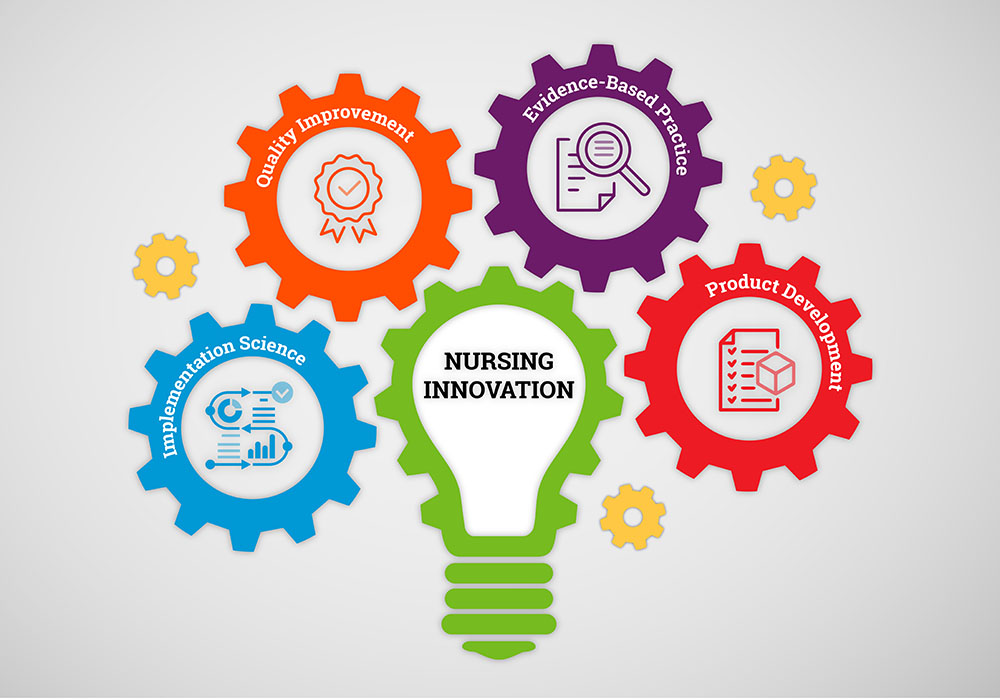Innovation—a proactive effort to create or build on ideas—is something that oncology nurses and advanced practice providers (APPs) do every day. This month’s 49th Annual ONS Congress® reminds us to “ignite the extraordinary” and recognize how we can use our strengths to blaze new trails for oncology and health care. Step by step, we all have opportunities to innovate in oncology nursing through evidence-based practice, quality improvement, the development of new products and technology, and research.
Evidence-Based Practice
Oncology APPs can spearhead discussions and network with diverse partners on a variety of clinical practice issues. For example, an APP involved in a tumor board discussion regarding biomarker testing might facilitate incorporating the testing into their institution’s standard guidelines, which ultimately expedites diagnosis, treatment planning, and treatment approval. Another APP could form a team to use clinical guidelines to bring scalp cooling programs to practice.
Oncology APPs are creating incredible projects and programs! Disseminate your work through presentations, publications (e.g., Clinical Journal of Oncology Nursing, Oncology Nursing Forum, ONS Voice), and proposing new research questions.
Quality Improvement
Oncology APPs often innovate by using a new product to make a quality improvement change in clinical practice related to factors such as patient safety, workflows, and costs. For example, when collaborating with new faculty, an APP recognizes an opportunity to improve the quality of bone marrow cores, patient pain scores, and overall satisfaction with the procedure by simply changing their institution’s equipment. The APP creates a business plan that outlines costs, billing codes, and reimbursement. In addition to the effect on patient satisfaction and outcomes, oncology fellows reported increased learning post-implementation.
Product Development
Historically, oncology nurses and APPs have been absent from patent applications, but product development teams need nurses to work with engineers to create new technologies that benefit patients, operations, and costs. Organizations that promote collaboration can benefit from nursing’s ideas, experience, and knowledge in practice for the development of apps, video games, virtual reality programs, mobile technologies and wearables, or other tools for patient care.
Implementation Science
Researchers and other stakeholders must partner with oncology APPs in the deliberate, systemic process of moving research into practice through strategies of adoption and mitigation of challenges, also known as implementation science. This is a key area for development and an APP’s experience in disseminating practice change: Currently, moving cancer research into practice takes approximately 15 years.
Innovation isn’t without its barriers, including time, education and skills, funding, and lack of organizational support, but oncology APPs are in a position to defy the concept of “this is the way we’ve always done it.”
Look for opportunities to be a part of a team to explore new ways of doing things. Keep asking, “Why?” and listen—those are two of oncology APPs’ best skills.






